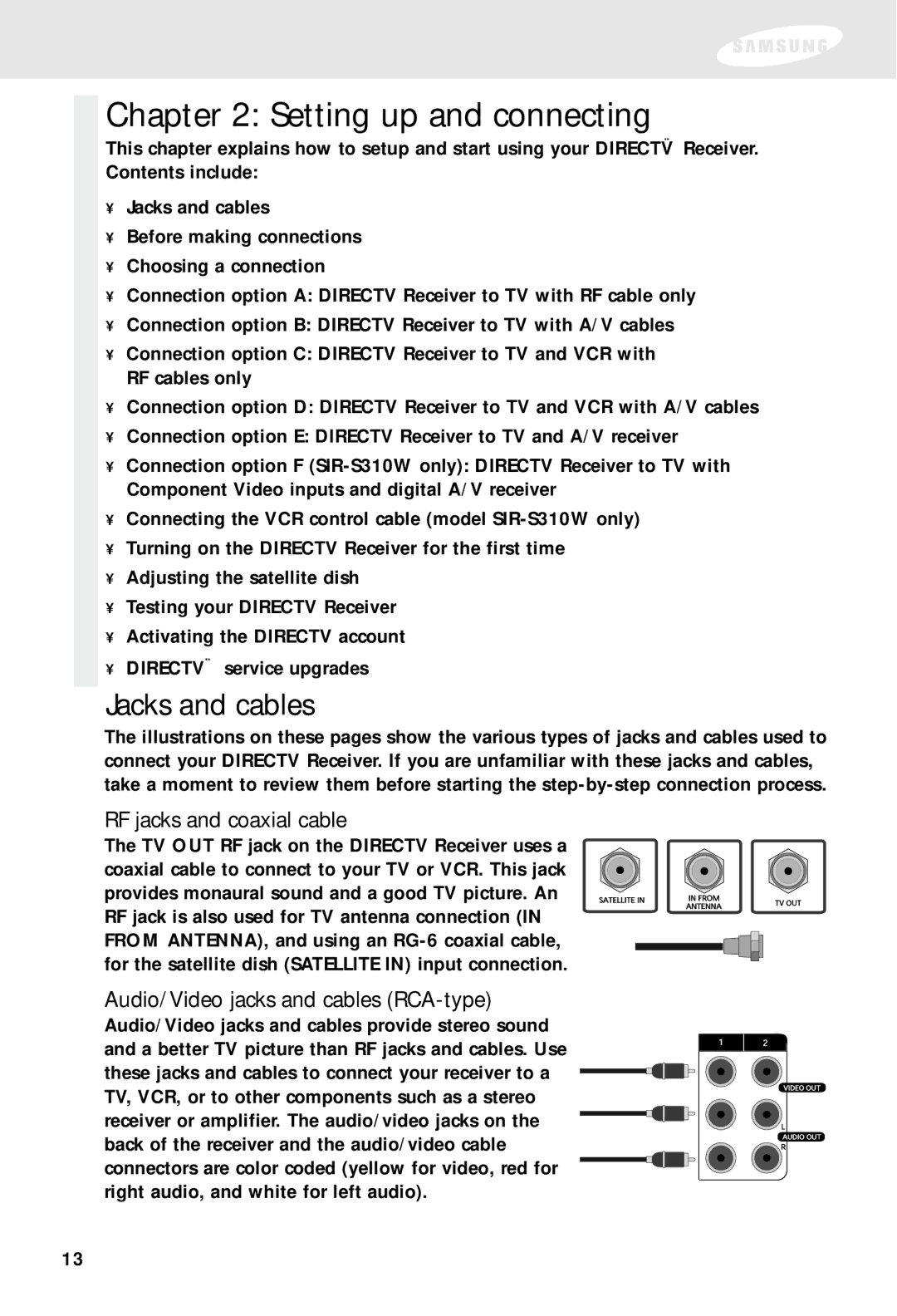
Chapter 2: Setting up and connecting
This chapter explains how to setup and start using your DIRECTV® Receiver. Contents include:
•Jacks and cables
•Before making connections
•Choosing a connection
•Connection option A: DIRECTV Receiver to TV with RF cable only
•Connection option B: DIRECTV Receiver to TV with A/V cables
•Connection option C: DIRECTV Receiver to TV and VCR with RF cables only
•Connection option D: DIRECTV Receiver to TV and VCR with A/V cables
•Connection option E: DIRECTV Receiver to TV and A/V receiver
•Connection option F
•Connecting the VCR control cable (model
•Turning on the DIRECTV Receiver for the first time
•Adjusting the satellite dish
•Testing your DIRECTV Receiver
•Activating the DIRECTV account
•DIRECTV® service upgrades
Jacks and cables
The illustrations on these pages show the various types of jacks and cables used to connect your DIRECTV Receiver. If you are unfamiliar with these jacks and cables, take a moment to review them before starting the
RF jacks and coaxial cable
The TV OUT RF jack on the DIRECTV Receiver uses a coaxial cable to connect to your TV or VCR. This jack provides monaural sound and a good TV picture. An RF jack is also used for TV antenna connection (IN FROM ANTENNA), and using an
Audio/Video jacks and cables (RCA-type)
Audio/Video jacks and cables provide stereo sound and a better TV picture than RF jacks and cables. Use these jacks and cables to connect your receiver to a TV, VCR, or to other components such as a stereo receiver or amplifier. The audio/video jacks on the back of the receiver and the audio/video cable connectors are color coded (yellow for video, red for right audio, and white for left audio).
13
